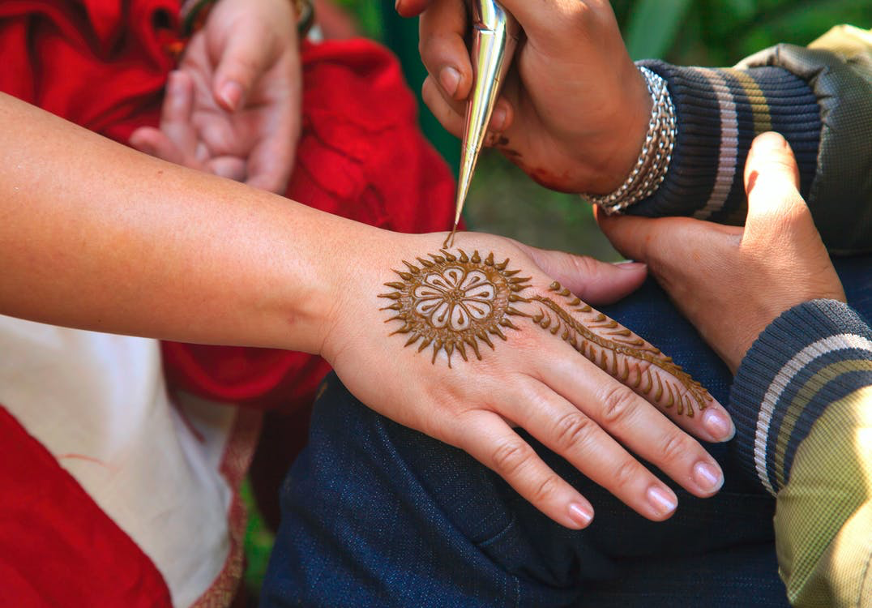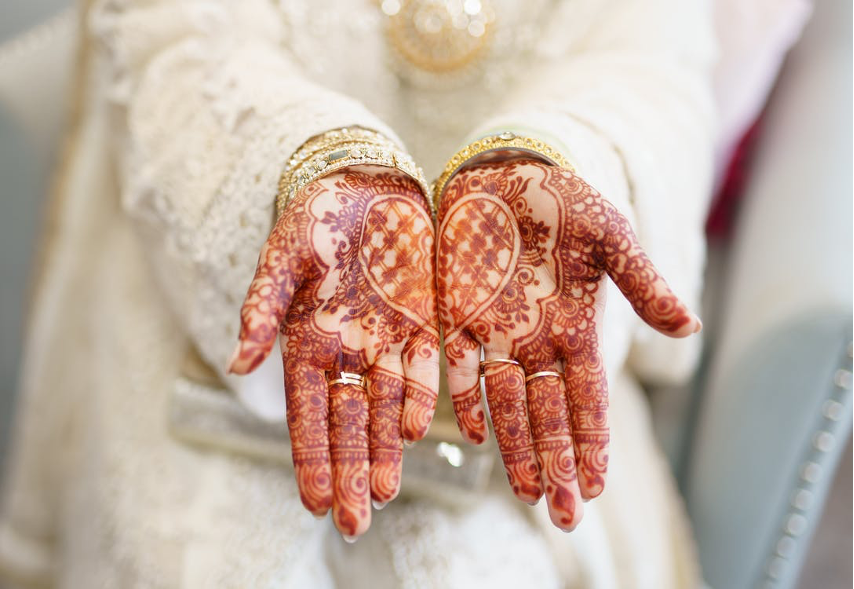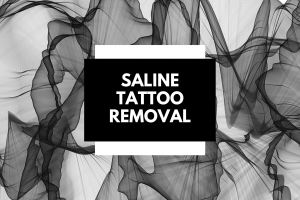
Henna paste or simply henna is a self-tanner which when applied on skin leaves a temporary stain. People mostly use henna to create decorative temporary art on their bodies. It is hard to find when and where henna actually originated. But people in Egypt, India, the Middle East, and Africa have been using henna for over 5000 years. It was initially used for its cooling properties in these tropical and subtropical countries. A thick paste of henna would be made, in which men and women often soaked their palms and feet. Sometimes, it was also used for its medicinal properties to treat open wounds, aches, etc.
After its temporary staining quality was discovered people started using henna as a decorative agent. Henna tattoos are mostly symbolic and follow a very traditional and intricate mandala-like art form. Although, with time henna tattoo has also changed its course of design with a more minimalistic and modern look.
How long does a Henna tattoo last?
A Henna Tattoo typically lasts for two weeks, depending on how well it is taken care of, after which it starts fading away. This is because the paste is applied on the outermost layer of the skin. Nonetheless, people might want to remove it before its natural course runs due to various reasons.
This article focuses on the different ways to remove henna tattoos quickly.
How to Remove Henna Tattoo (11 Quick & Easy Ways)

- Cover-up makeup: For an immediate result, a full-coverage concealer might be helpful. This method is just for temporary concealing of the henna tattoo, and will wash off the very moment the makeup is exposed to water or any makeup removing agent.
- Lemon juice: Lemon juice contains citric acid and vitamin C which have skin lightening properties. Applying lemon juice on henna might, thus, help in fading of the henna stain faster. People with sensitive skin should proceed with caution because of the acidic properties of lemon. After completing the application, rinse the lemon juice with luke-warm water, pat and dry the area.
- Baby oils: Baby oils can dissolve henna stain helping in removing henna tattoo faster. Putting baby oil in warm water and soaking the henna stained area in it for 20 minutes or so is one method of removing henna tattoo. Another method is direct application of baby oil using a cotton ball on top of the henna tattoo. Baby oils are available both at retail stores and online.
- Warm water and soap: Applying gentle soap and warm water on henna tattoo helps in removing the pigments faster. Repeating this method several times a day will ensure faster removal of henna tattoo. After the process, it is advisable to apply moisturizer to avoid dry skin.
- Baking soda: Baking soda is a great exfoliator and helps in removing stains. A thick solution made with lemon juice and baking soda can lighten the henna tattoo stain. The paste can be made very easily by squeezing and extracting lemon juice and adding baking soda in the juice. Apply the paste on the henna tattoo stain and wash it away with water after 10 minutes.
- Exfoliating scrubs and shaving: The henna only inks the topmost layer of the skin. Exfoliating the stained area with loofah or exfoliating scrubs helps in removing the henna pigments. Also, shaving the area with a clean razer and shaving cream helps in lightening the henna tattoo stain.
- Micellar solution: Micellar solution contains cleansing water with minor special particles called micelles. It gently breaks down makeup, oil or color pigments and cleans the surface of the henna stained area. It can be purchased online and is also available in most drugstores.
- Salt water: Salt is a good exfoliating agent. Sea salt, Epsom salt or even table salt works as a good exfoliating agent. This process includes mixing salt in water and soaking the henna stained area in it. The sodium chloride in the salt helps in removing dead and pigmented skin cells.
- Raw sugar and coconut oil: Liquid coconut oil and raw sugar cane extracts acts as a great exfoliating agent. The process follows lathering coconut oil on the henna tattooed skin and letting the area absorb the oil. Then, put the raw sugar on top and rub it. This then needs to be washed with water properly to get rid of the sugar and oil from the skin.
- Hair conditioner: Applying hair conditioner to the henna tattooed area and then washing it off with warm water after some time might also help with the fading process.
- Makeup remover: A silicon-based makeup remover can also help with fading of the henna tattoo pigments. This process needs to be repeated a few times per day to get the desired result.
While mostly all are natural remedies and are safe to use, it is always better to check if the given solution suits the skin type or not. Also, applying moisturizer at the end of these procedures to avoid rough and dry skin is advisable.
Safety Precautions
As henna is mostly a naturally made substance, it is safe to apply it on skin in general. But in some cases, henna might cause some kind of skin irritation or other kinds of infection, and so it is always better to avoid applying it or removing it quickly if already applied. There are some additives in henna, like – clove, olive oil, coal, vinegar, etc which can cause skin issues. According to the Food and Drug Administration (FDA), reported side effects include:
- Redness
- Pigmentation loss
- Sensitivity to sun
- Weeping (fluid secretion from lesions)
- Blisters
There are cases where people have reported skin irritation immediately or 3 weeks later to the application of henna. Some manufacturers make black henna which consists of coal-tar called p-phenylenediamine. Consumers must be careful, as FDA does not approve of black henna.
Even though these removal remedies are on the safer side, it is important to keep in mind that henna tattoo stain will not leave immediately. The process is gradual and must be followed at regular intervals to see better and faster results. However, overdoing it can result in skin damage. In case of serious skin troubles due to henna, please seek advice from a dermatologist.




